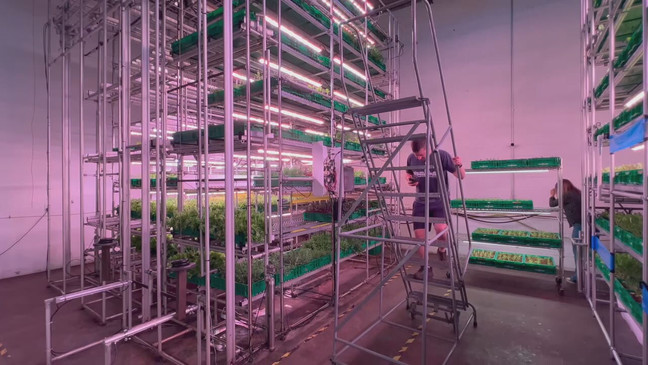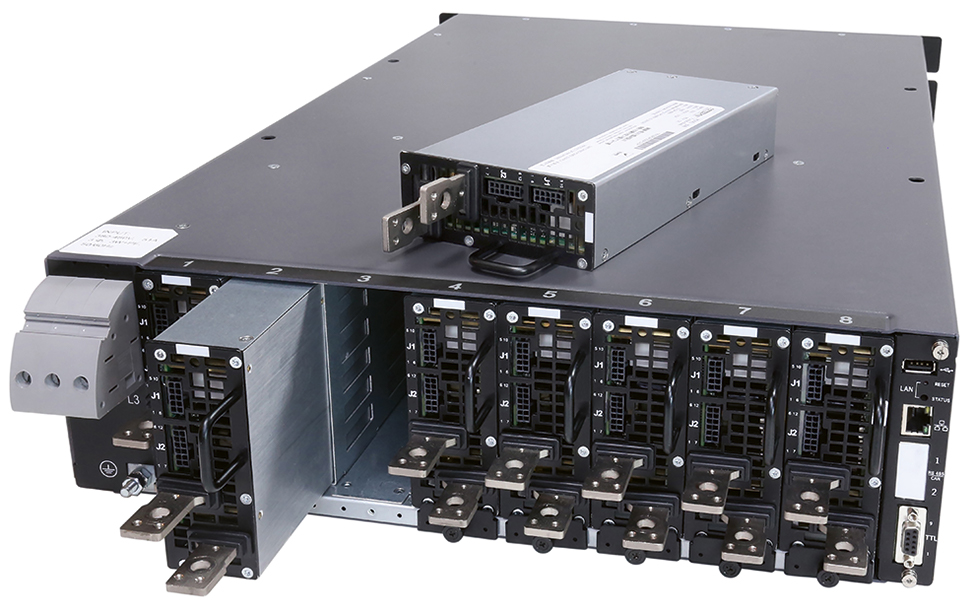#Agriculture #VerticalFarming #UrbanFarming FoodDeserts #Nutrition #SustainableAgriculture #CommunityWell-being #AccessibleFood #InnovativeFarming
In the heart of Arlington, an inconspicuous warehouse is harboring a groundbreaking agricultural endeavor that aims to redefine access to fresh and nutritious food. Area 2 Farms, established in 2022, has introduced an innovative vertical farming system, known as Silo, that operates year-round and holds the potential to combat food deserts in urban areas. Join us as we explore this remarkable venture and its potential impact on nutrition and community well-being.
When you think of a farm, images of vast fields and rolling pastures likely come to mind. However, a new agricultural revolution is quietly taking place inside the unassuming walls of a warehouse in Arlington, Virginia. Area 2 Farms, founded in 2022, is poised to be a game changer for nutrition in food deserts by utilizing vertical farming technology to grow fresh produce year-round.
At first glance, this warehouse may not seem like a traditional farm. Situated amidst an autobody shop and a doggy daycare, its appearance is deceptive. Nevertheless, behind its brick façade and a conspicuously green-painted door lies a marvel of modern agriculture. Jackie Potter, the marketing coordinator of Area 2 Farms, guided our Health and Wellness Reporter Victoria Sanchez through the humid interior of the warehouse, revealing the heart of this innovative farming operation.
The centerpiece of Area 2 Farms is the Silo, a towering vertical farming apparatus equipped with eight levels for growing greens. What sets Silo apart is its ability to replicate the natural day cycle of plants. The bottom two layers remain unlit, simulating the plants’ “sleeping” phase. As the cycle progresses, the plants move up, receive water, and gradually awaken, mirroring the natural process seen in traditional farms.
One might wonder how a farm ended up inside an office building. Jackie Potter explained, “It all kind of depends on which building it is and what the landlord says. We really just need an outlet and some water.” In a post-COVID world, vacant buildings have prompted landlords and cities to explore new occupancy options, and urban farming is proving to be an enticing choice.
Silo even boasts some unconventional mascots—Toy Story characters. Radishes are grown under the watchful eye of Stinky Pete, while green onions are guarded by Rex. Mechanical pulleys, operated by plastic toys like Claw, Slinky, Buzz Lightyear, and Zurg, assist in transporting the plants as they grow, adding a whimsical touch to this high-tech operation.
However, the true essence of Area 2 Farms lies in its mission to address food deserts in urban areas. In many cities, lower-income neighborhoods lack access to fresh and nutritious food, with fast-food restaurants often dominating the landscape. According to the USDA’s Food Access Research Atlas, Washington, D.C.’s food deserts are predominantly located east of the Anacostia River. Area 2 Farms is determined to change this.
“In urban areas, there’s what they call ‘food deserts’ where you might have a McDonald’s and a Wendy’s, and the closest grocery store is going to be a few miles away where people can’t get to. Could this help with that?” Sanchez inquired.
Jackie Potter’s response underscored the transformative potential of this endeavor: “If we can bring a farm there, the fresh access to food, especially in lower-income areas, is huge. They are receiving bags of chips or other things to help aid with the food desert, but if we were to bring a farm there, I mean that’s a game changer for nutrition.”
Moreover, Area 2 Farms is actively working to make its produce available through SNAP and WIC benefits, which assist low-income families in supplementing their grocery budgets with fresh and healthy ingredients. This commitment to accessibility underscores the farm’s dedication to improving community nutrition and well-being.
In a world where terms like “organic” and “farm-to-table” often connote luxury, Area 2 Farms presents an inspiring vision of a more inclusive and sustainable future. Through innovative technology and a commitment to serving underserved communities, this Arlington vertical farm is poised to be a true game changer for nutrition and food equity.
Tags: Agriculture, Vertical Farming, Urban Farming, Food Deserts, Nutrition, Sustainable Agriculture, Community Well-being, Accessible Food, Innovative Farming.












